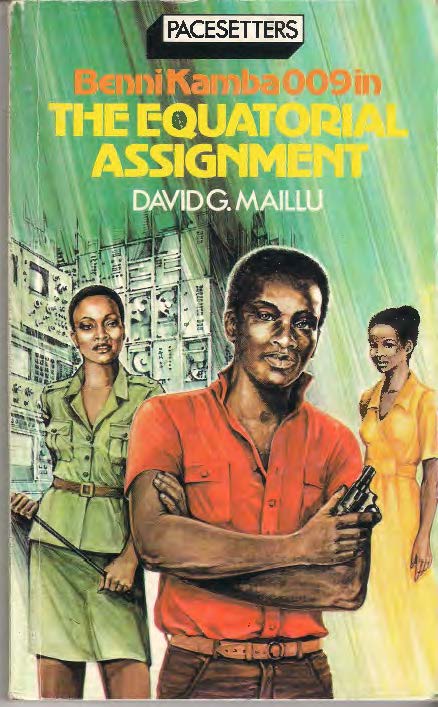By Bamuturaki Musinguzi
Published February 22, 2012
![]() A poetry anthology from Uganda tackling issues such as cultural heritage, wars, poverty, love, pain, betrayal, shattered dreams, sex and death, has been published.
A poetry anthology from Uganda tackling issues such as cultural heritage, wars, poverty, love, pain, betrayal, shattered dreams, sex and death, has been published.
Written by Mildred Kiconco Barya and titled Give Me Room to Move My Feet, the book is a collection of 100 poems divided into seven sections: revolving lives, stormy heart, before the sun sinks, the pain of tenderness, shame has a place, the shape of dreams and until the last breath is drawn.
The theme of domestic violence is captured in the poem The Perfect Match. The wife threatens to divorce because he picks up the laundry, empties the bin and attends family planning sessions. The husband brings her the job pages so she may try her luck, but she prefers staying home watching television. He points fingers and picks up an axe, children take cover under the beds and she flees to the cattle shed.
RELATED: Here’s How East Africa Thinks and Expresses Itself
The clash between modern and native diets is played out in the poem What’s Native Can’t Harm You. A ‘polished’ woman visits her mother upcountry with packed tinned foods and waffles plus alternative capsules for victims for her children. The grandmother won’t understand why her grandchildren cannot take the ripe mangoes, oranges and the tangerines that are in plenty. “They’ll catch a fever if they eat this and that,” she is told. The grandchildren eventually eat their packed junk food and they ended up stunted like fishermen’s hooks.
The poem The Place Where you begin (The Third World), highlights the challenges of the least developed world. It is a disorganized place plagued with basic lacks and wants, regular electricity, flowing water and hygiene.
In the poem Skipping she writes that people believe that their creator blesses other generations and skips theirs. “Our parents were the blessed lot. They loved whole, married well. We are the skipped. Our loves gone sour, nations betrayed at our hands, justice ripped from her seat.”
Barya observes that we fear to touch pain and are afraid how it exposes us, and if only we knew we own it. “You can always see the look of pain whichever spot you stand, in the empty eyes of children huddled on the streets, in the familiar heartache songs you hear, in the frenzied beats of the drums, in the wound that pound with a rhythmic echo, universal pain,’ the poem .’ The Look of Pain,” goes in part.
The dreadful Monday mornings are depicted in the poem ‘Monday Mornings.’ They come with a lot of indigestion, constipation, exhaustion, hang-ups and hangovers. We do not hesitate to rejoice when it turns out to be a public holiday then we extend the weekend.
Love, pain, jealousy and anger are medical conditions to be assuaged with homeotherapy and grandma remedies, the poem Medical Conditions suggests.
In the poem Miracle Inside, she sits in the chapel trying to make sense of the white-washed walls, why the heart cannot be that clean, and why the spirit must keep seeking.
She compares the natural beauty of the Sipi Falls in Kapchorwa in Eastern Uganda to the Mississippi in the USA in the poem ‘Sipi.’ “What have you in common with the ancient Mississippi/That your name should be hewn out of that river? /Perhaps it’s the beauty you share, immense/Long with endurance, swollen with stories/Formidable. Imposing. To drink from your wellness/A traveler can never forget/Cool, refreshing you are/ You’re here forever.”
“I wish depression had a cure,” goes the shortest poem A Wish.
In Dream Carriers, she asks how it feels to watch your dreams slip from your reach. Is it like losing ground in a job interview breaking you in cold sweat?
RELATED: Here is a Book Full of Life, Adventure and Unexpected Twists
Barya decries the senseless wars in Africa in the poem, Revolutionaries. The bosses got fat on the gold and slept under mosquito nets in the best hotels, while the foot soldiers shared the bush with snakes and spiders. One by one of their colleagues die and all the government did was to deny the deaths. The soldiers eventually saw how cheap they were.
Barya’s first book of poetry, Men Love Chocolates But They Don’t Say (2002) won the National Poetry Award in Uganda. Her second collection, The Price of Memory After the Tsunami was published in 2006. Her short stories include Scars of Earth, Effigy Child, Those Days of Ebola, and Land of My Bones.
Barya was born in Uganda and studied at Uganda’s Makerere University, Kenya’s Moi University, and Germany’s International Women’s University.




